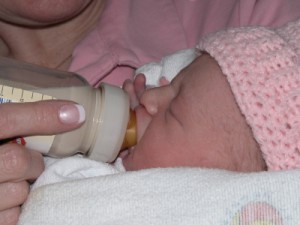 This post is the 19th in a series on Booby Traps made possible by the generous support of Motherlove Herbal Company.
This post is the 19th in a series on Booby Traps made possible by the generous support of Motherlove Herbal Company.
Today I’m writing about one of the biggest Booby Traps, the non-medically necessary supplementation of breastfed babies with formula, glucose water, or water, during the hospital stay.
Supplementation is a problem for a number of reasons, including the damage it can do to a mother’s developing milk supply and the confusion it can cause a baby who is learning to suckle at the breast. It’s strongly correlated with shortened breastfeeding duration, or what we would call, in Best for Babes vernacular, moms not meeting their personal breastfeeding goals.
As I’ve been ticking off the many Booby Traps lurking on maternity wards I’ve been relying on recent CDC data on maternity care practices. It’s called the mPINC survey. Hospitals complete this survey two years, and the response rate for the over 2,600 hospitals and birth centers was a remarkable 82% in 2007 and 2009.
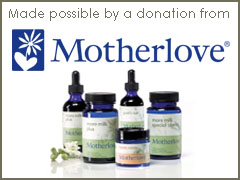 Hospitals are assessed on their compliance with the Ten Steps to Successful Breastfeeding - evidence-based policies known to increase breastfeeding rates. One of the key steps, or course, is not giving formula or other supplements unless it’s medically necessary.
Hospitals are assessed on their compliance with the Ten Steps to Successful Breastfeeding - evidence-based policies known to increase breastfeeding rates. One of the key steps, or course, is not giving formula or other supplements unless it’s medically necessary.
The CDC judged adherence to this policy based on the number of hospitals reporting that “<10% of healthy full-term breastfed infants are supplemented with formula, glucose water, or water.”
And what percentage of hospitals met this threshold in 2009? 21%.
Why does this happen? Some of it probably has to do with babies being separated from their mothers. As I wrote previously, only one third of hospitals report that 90% or more of their mothers and babies are “rooming in.” As you know, breasts don’t stretch down hallways and under doors. So if babies are in nurseries it’s more challenging for mothers to exclusively breastfeed them. Unless a mother is very clear that she is to be called in to feed her baby, hospital staff often interpret a baby being sent the nursery as a green light to give the baby a bottle. And even when the instructions are to call mothers in to breastfeed, this doesn’t always happen. So lack of compliance with one of the Ten Steps leads to problems with another of the Ten Steps. Put differently, one Booby Trap leads to another.
Another reason for all this supplementation is maternal request - meaning that mothers request that their babies get formula during their hospital stay. We moms, especially first time ones, are often scared that their babies aren’t getting enough milk. Or we want to sleep. Or we have nipple pain because we haven’t gotten skilled help getting our babies latching well, and we want a break.
Here again, it’s easy to blame mothers, isn’t it? Certainly, we have to take responsibility for our actions when we’ve been informed of the risks. But many mothers don’t know what it can mean to breastfeeding to supplement - in hospital terms, they don’t have “informed consent.”
And even when moms do know the risks, hospital staff need to stand up for what is going to make the mother much more likely to succeed with breastfeeding. This means that they need to have adopted evidence-based policies to support breastfeeding, and have providers who do their very best to uphold them, even when a mother requests otherwise. In other words, as Jennifer Block said in a post on early elective births, “It is physicians’ and midwives’ responsibility to practice good, evidence-based medicine and to educate their patients.”
So what does that mean practically? It means that if a mother asks for formula to feed her baby, a nurse or other provider has to be able to stand behind a policy and, after asking why the mother wants to give her baby formula, explain:
“You know, hon, you’ve told us that you want to breastfeed, and we want to help you be successful with that. Giving your beautiful baby formula can make it really difficult for you to produce enough milk. That’s why at this hospital we don’t give formula to breastfed babies. She’s doing great on your milk, and I know you can do this.
And then, depending upon the mom’s expressed concern:
“Oh, you’re worried she’s not getting enough milk. Want to see how small her tummy is now? (cue belly balls or some other teaching tool).”
“It hurts? Let me help you get a better latch.”
“I’ll bet you’re tired! Let me show you how to nurse her and rest at the same time. Let’s also put a sign on the door asking that you not be interrupted when you take your next nap.”
There are lots of possible variations on these responses, but you get the idea.
The alternative, which I have to believe is what happens most of the time, is:
“You want a bottle? Okay, be right back.”
And that, to me, is just not good enough.
Did your baby get supplemented against your wishes? Did your baby get supplements because you requested it?



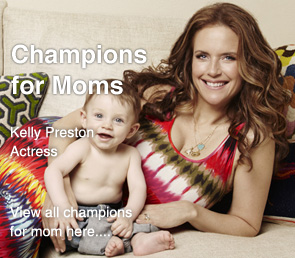


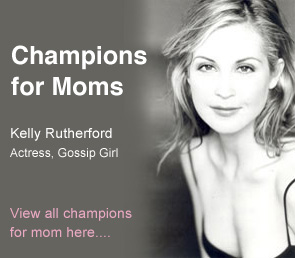
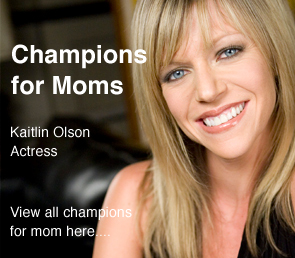
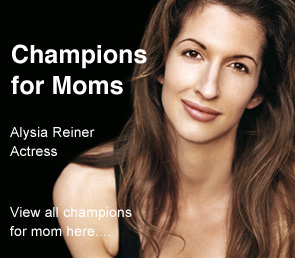
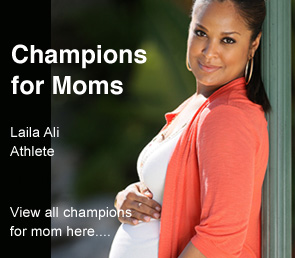
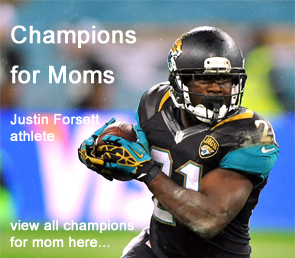
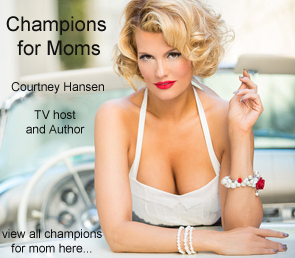



They gave my baby a bottle because they said her glucose was too low. I initially tried breastfeeding to get her glucose up but it was still too low so they said I “must” give her a bottle. Her glucose did go up after that but I think ultimately it did hurt my supply. I was only able to exclusively breastfeed for the first 4 months, then I had to start supplementing because I was not producing enough and she was not gaining any weight. It was devastating to me.
I had bottle fed my first child ( I honestly didn’t know I would be missing out on anything), then with #2 I started with a bottle in the hospital but then felt extreme guilt and depression when my son was having difficult bowel problems due to formula. My fabulous doctor (at 2 weeks) recommended I give breastfeeding a shot and I worked on re-lactation and increasing my supply. It worked pretty well and was able to breastfeed him about 90% of the time until 4 months. Then I found out I was pregnant again and did not think I could nutritionally support breastfeeding and a growing baby so I quit. So baby #3 was my “redeeming” moment in breastfeeding. It was saddening to me to only be able to exclusively nurse for 4 months. I really wanted to go for a bare minimum of 6 months and was shooting for 12. So the initial introduction of a bottle partnered with my lack of lactation assistance ended with me supplementing prematurely.
My first was most likely supplemented against my wishes. They never answered my questions one way or the other. My second was nearly supplemented. His blood sugar was slightly low (I was told my room was ready, so I sent him to be weighed and checked before completely finishing nursing so I could move rooms and get situated for the long haul. The pediatrician told my husband (not our doc) that she feared for his life if he didn’t get formula. Of course, he said it was find, to do what was needed for his health. THANKFULLY, my IBCLC was in the room and heard the conversation. She jumped in and gave the doc a piece of her mind, came and helped me express colostrum, and he was perfectly fine.
My daughter spent time with me when she was first born, but they took her away some time after and put her under french fry lamps. They told me I couldn’t hold her again until her body temperature reached 98.6 (her normal body temperature is 97.8 to this day). Since the french fry lamps were dehydrating her, they asked to supplement. I said no. So they let her dehydrate until they made me feel bad and finally supplemented her with glucose water. I also had latching issues and then the jaundice wasn’t getting better. I was told I had to supplement because she had breast milk jaundice. We supplemented against our better judgement. At day 5, we brought in a lactation consultant who helped us with latching, but it never happened. We had to use a nipple shield. In the meantime, jaundice was still not getting better, and I was told I needed to supplement. I refused, because at this point, she was latching with the nipple shield. I got a second opinion from another dr. who told me that formula was not a magic potion that got rid of jaundice. Her bilirubin levels started going down SLOWLY and as long as they were going down, formula wasn’t needed. We breastfed with the nipple shield until month 5,when she FINALLY latched. It was such an ordeal.
Also, you need to stop posting negative things about the nipple shield. Without it, I would never have been able to breastfeed. It did not affect my milk supply.
@Joanne, I’m so sorry to hear that you had such a difficult time with your daughter’s jaundice. It sounds like you really advocated for her and that’s an awesome thing. We love to hear from empowered Babes!
We do continue to caution against the unsupervised use of nipple shields in situations where they haven’t been specifically recommended by an IBCLC or similarly trained professional. Most moms don’t need them and they can cause a variety of problems, often complicating already delicate situations. They’re a great tool when they’re necessary, but when they aren’t, they can cause major issues and that’s something we do need to discuss.
I had a major problem establishing breastfeeding with my daughter. We had a very snippy discharge nurse who was against breastfeeding. When I asked for a LC, she said, “You’ll just have to give that baby a bottle.” I took the kid and went home on a Friday.
We struggled all weekend. Daughter was dehydrating. Finally got a different LC in on Monday. She diagnosed the problem, but it took her to put her finger in Daughter’s mouth while I was trying to feed her. Her tongue curled the wrong way. No wonder she wasn’t getting anything!
The LC recommended a nipple shield, and to supplement by pumping after feeding, to build up supply.
It was a lot harder than it should have been, but we made it work. She was exclusively breastfed for 4 months, when we started supplementing with cereal (this was back when that was recommended). She continued to nurse for about 3 and a half years. Even now, when she wants comfort, she’ll lay her head on my breast.
Because of her dehydration, she had to be admitted to the hospital through the ER at one week old. We stayed there for another 7 days. It wasn’t easy trying to make it all work, but we finally did. I still think if I’d gotten proper advice when she was a day or two old, we could have avoided a whole lot of trouble and anxiety and high hospital bills.
By the way, when I finally got to the LC at the hospital, she told me I could have called her over the weekend (I wasn’t informed of that), and that Nurse Snippy had been fired. Evidently she caused other mothers problems as well.
My story pretty much mirrored yours all the way down to the nipple sheild. If it hadnt been for that thing, I wouldnt have been able to breastfeed my child and she was 5 months before she could latch without it. Thankfully my son never needed it
YES- my son was supplemented with formula several times after I specifically asked for him not to be. He ended up in the NICU and was not allowed anything to determine if he had some type of allergy. When he was allowed, no one notified me, just gave him formula (I was right down the hall). When I was told I explained that he was to be breastfed and that I wanted to be called if he needed to be fed before I got there as I was going down every 3 hours. I arrived in the NICU at 3 am to find a nurse finishing a bottle with him. I lost my $hit on them and the agreed again to call me and this time they did, but he no longer wanted to nurse because it was hard. Thank the Lord for a nurse named Stacey who stepped in and helped us get things back on track. It took me 4 weeks to realize he didn’t need the supplements I was giving him. I was dead set on nursing and made it work but I am sure someone who was not as committed would not have put in the effort needed. My son is 20 months old and still nursing <3 I still am thankful to Stacey and her help!
My first was supplemented against my wishes. We felt pressured by a nurse who was very controlling and basically stood over our heads until we would give her a bottle. Thankfully, the hospital had changed policies by the time we had our second and they were VERY breastfeeding friendly. No one even mentioned formula, we never got samples, coupons, any freebies at all.
Thank you for this wonderful article! Please consider including donor milk on your list of unnecessary supplementations. Although it’s healthier than formula, supplementing with donor milk when it’s not medically necessary can cause all the same problems.
My daughter was not given to me immediately after birth because her heart rate kept dropping so she was taken and looked over while I continued with the afterbirth and got stitched up. So I tried to breastfeed her and no one really helped me. The nurse that was there taking care of us had to score my efforts on breastfeeding and gave me a very low score, like 2 or 3. But I had no help. So I get to my room and I can’t get baby to latch on. Nurses are there but not an LC. So the nurse asks if she can give LO formula and I’m hesitant but I also didn’t want my baby to “starve” so I said okay. I think she got 10mL of formula. Then we had to supplement with the Medela SNS until my milk came in because my LO was so sleepy her first week. She didn’t want to wake up to eat and she certainly didn’t want to work for her food. After my milk came in we got rid of the formula. I still have some in my household, I label it my “emergency” formula in case something happens and I can’t give LO my breast milk. I pump for her on a daily basis (while at work. I nurse every other time) and don’t have a “stash”.
My daughter ended up getting a formula supplement in the hospital after she lost more than 10% of her birth weight. I wanted to be able to bring her home on time and avoid the NICU, and one of nurses suggested supplementation. I must say first, though, I had excellent support breastfeeding. But on the second night, when she dropped below four pounds I said I was willing to do anything to get her gaining again. The nurses worked with me to help me continue breastfeeding on schedule and only supplement 15 cc’s of formula after 30 minutes of nursing. They also got me set up with a pump so I could then start supplementing breastmilk instead. My daughter picked up the requisite weight, she came home on time, and we supplemented with pumped milk until given the green light to feed on demand. Ideal? Maybe not. But, a little supplementation helped her get over the hump, and we’ve been nursing exclusively and effectively ever since. I’m not sure if that qualifies as medically necessary, but I felt that the hospital was committed to helping me achieve my breastfeeding goal and to keeping my daughter fed and healthy through our difficulties.
My baby was given formula against my wishes. The dr freaked about low blood sugar which was normal for not eating all day and hooked baby up to an IV. They wouldn’t let her room with me or feed her more often than every 2 hours, making my milk take longer to come in which led to dr pushing formula and pretending donated milk didn’t exist.
When my first was born there was no LC working for the hospital where I delivered. Before I went in to have her I made clear to them that I would not let them put anything in my baby’s mouth. Once she was born, I reminded them, do NOT put anything in my baby’s mouth, I am nursing.
Then when she was about 2 days old she went through a spell of not nursing for about 5 hours. I didn’t know what to do, I didn’t know how to get her to nurse. The nurses kept coming in about every 15 minutes after 3 hours saying, has the baby nursed? Do you want to supplement? I kept saying emphatically NO, I do NOT want to supplement, I want to NURSE my baby. I need someone to HELP ME NURSE MY BABY. They brought me a tv with a video about nursing. That did NOT help. Another nurse gave me a little weird soft plastic cup type thing and I expressed some colostrum into it. My baby finally drank a little of that and shortly after latched on.
It was a very frustrating time. The first 6-8 weeks of nursing were pure torture. I was in agony, but I stuck with it because I knew it was best for my baby. I know a lot of people give up because they don’t know what to do and the pain of it scares them. I know that some people actually do not have any pain in the first few weeks but I did and while I think it’s a wonderful thing for a woman to go through this with no pain, I also think that it is unrealistic for people when they say it shouldn’t hurt. I don’t think it should have hurt as much as it did for me, but it did.
Anyway, I nursed my eldest for 2 years, my middle child for 3 years and my youngest is now 2 and still nursing. So… Lack of a lactation consultant shoul dnot prevent you from being stubborn enough to become very well educated on the subject of nursing and sticking with it for your baby. I realize that some situations require not nursing and I actually totally respect that, but I also think that way more people can and should nurse at least for the first year.
HA! A sign on the door so I won’t be distrubed. Yeah right. I did this during my hospital stay with #2 and the ONLY person who obeyed it was THE LACTATION CONSULTANT who I kept asking and asking to come see me!! It seemed like every other person in the hospital was coming into my room to empty the trash, take my food tray, drop off my gift bag, ask if I was going to circumsize my son (FOR THE 100th time - NO!). The only person I WANTED to see was the only person who read the sign. Ugh. Vent over…
My daughter was supplemented against my wishes. When confronted they said nothing was on her chart so nothing was given. However, how do you explain dried formula dots by her mouth? Dried formula looks VERY different from dried breastmilk! They also said she was fussing for one of the exams and needed to be calmed down. Thankfully we made it past that and approach the 2 year mark in 21 days!
Unfortunately, my second son fell into the category of medically necessary formula However, once he was taken to the NICU, I called my nurse and asked for a pump to make sure my milk supply could come in, and the pump was in my room within 15 minutes, along with sterile supplies and everything I needed. It helped that my nurse was collecting her hours to sit for the IBCLC exam. And my son’s first nurse in the NICU was an IBCLC. I was extremely happy with my hospital’s lactation support.
However, once he was taken to the NICU, I called my nurse and asked for a pump to make sure my milk supply could come in, and the pump was in my room within 15 minutes, along with sterile supplies and everything I needed. It helped that my nurse was collecting her hours to sit for the IBCLC exam. And my son’s first nurse in the NICU was an IBCLC. I was extremely happy with my hospital’s lactation support.
Also, the formula was given because of low blood sugar. Once it was clear that a single bottle wouldn’t keep his glucose up and he was taken to the NICU, he was never given any more formula. All their efforts were then placed on helping him nurse, and helping me do what I needed to do to get my milk to come in so that MY MILK would nourish him and give him the sugar he needed Not formula. And he hasn’t had a drop of formula since the day he was born (and he’s 5.5 months old now).
Not formula. And he hasn’t had a drop of formula since the day he was born (and he’s 5.5 months old now).
My FT son was only 4lb 8oz and was diagnosed as being intro-uterine growth restricted. The ped we saw in the hospital wanted him to have 10ml of breastmilk or formula every 2hrs, and since he wasn’t latching well, it ended up being mostly formula. I started pumping right away and syringe feeding colostrum, then putting to breast, then bottle feeding. In hindsight it was probably all overkill, but I don’t know if the formula was really medically necessary or not. My milk came in the day we left, and he never had a drop of formula again.
(He also turned out to be allergic to dairy, which we found out after he turned a year old, but that’s a whole nother bag of worms!)
The low blood sugar thing must be common! That’s what happened to my baby boy. Since my little girl was given a bottle while in nursery for observation and would never latch after & I had to pump, I was adament that he not get a bottle & told EVERYONE so it didn’t fall through the cracks, but they also kinda used scare tactic with me so of course for his health I agreed to it, but it made it really difficult to get him to latch afterward. But I’m happy to report he’s still breastfed at 4 months!
The reason they give them formula is to cover their rears. Even if it’s is not in the best interest of the baby or mother, they have to make sure they won’t get sued so they go with the ‘safe’ option of shoving formula down their throats. Can’t get sued for that unfortunately.
My daughter lost 13% of her body weight so was automatically deemed outside of their charts, my milk wasn’t fully in (plenty of colostrum) so I was told that she would be brain damaged if she didn’t get given formula. Even though she showed all signs of being strong and healthy and her blood sugar was fine, and my milk was on it’s way. This was in a baby-friendly accredited hospital! So I shudder to think what a ‘regular’ hospital does when they actually have formula on hand to use (we were ordered to go out in the middle of the night and buy some). We told them where to stick their formula, had a huge fight with the paed and midwife and made them suggest an alternative solution. So I ended up pumping every hour (between feeds) all night to bring on my supply. The midwife who came on duty that night was wonderful and supported me all through the night and helped make it a success. Everyone else was AMAZED that it was a huge success. My daughter put 100g on overnight and my supply increased. We went on to successfully breastfeed for 2 years (and counting). I often wonder what might have happened in those rocky few first weeks if I had used formula as kept getting pushed on me by medical ‘experts’. It was suggested by every (male) doctor I saw - due to my daughters ‘small’ size (she was 25th percentile, but when looking at tall and stocky me as a reference point - my husband is very petite). Most LC’s and midwives were brilliant and told me to ignore them and keep doing what I was doing - perfect advice as it turns out.
Male or female, I think many hospital staff would strongly encourage, or require an infant that has lost 13% of their birth weight to supplement while you are still in the hospital. A lactation consultant has an interesting role, because it is her job to use her knowledge to make breastfeeding successful for the mother. She has no legal responsibility for the care of the infant. It’s wonderful that the infant was strong, healthy appearing, and had a normal blood sugar, but if there would have been any decline of the infant’s health, it could be traced back to any medical professional involved in the infant’s care, for not doing something as soon as the infant was down 10%. I am very supportive to doing everything possible to stimulate a mother’s milk production, and it is upsetting to read many of these posts where it obviously is not being done correctly. I also find it unsettling that people in other posts are calling certain reasons for supplementing to be a “scare tactic”. I have given formula to infants who had no issues with latching as a result, and have never given a nipple or pacifier to infants who took 2 days to establish a good latch. You can take tips and advice, read books,take classes, but there are no definites. I don’t know the specifics of your experience, but I wonder how many other things happened to make it upsetting for you. Many hospitals are not the place to have a baby if you’d like to exclusively breastfeed despite weight requirements. There’s too much liability, and not enough one-on-one support. It definitely sounds like you went to any length possible to only breastfeed (with amazing commitment and endurance), and you probably know more about what could have been done to make it better. I have no intentions of scaring anyone when recommending supplementation, but high weight loss, or especially electrolyte imbalance, are legitimate causes for concern. I’m surprised they didn’t draw labs other than blood sugars when the baby was down 13%.
I shouldn’t say there is no legal responsibility for the lactation consultant, but it is different.
My baby had to be supplemented because she was in the NICU and was too premature to latch on successfully. I pumped as long as I could so that she could have breast milk in addition to the preemie formula she needed in order to gain weight. My own medical issues required medication that dried up my milk, but I’m proud that I was able to provide 6 weeks of breast milk for my daughter.
She flourished on formula and stayed on it until she was 14 months old. Then we switched to whole milk, and now at 2 she drinks the 2% which she prefers. I do not regret at all that she was primarily formula fed for most of her infancy, and I don’t think there’s anything wrong with that. I hope that people understand that not everyone CAN breastfeed, even if they really want to (and I did and had planned to for 12 months if possible). I have been told by her therapists and pediatrician that she is very intelligent for her age, and especially considering the circumstances around her birth.
I have breastfed all three.
My 2nd was 10lbs 4 oz and I needed to be in the OR post (vaginal) delivery. A friend had warned me they try to give “big” babies formula so I stationed my husband with strict orders to make sure they did not give the baby a bottle.
Post-surgery, they would not accept me at maternity until I could move my legs. Nursery wouldn’t bring baby to me (despite the okay from post-op) because they “didn’t have the staff”. My husband was not allowed to bring the baby over himself.
Ensue a farce of scare tactics and threats…”the baby has to eat” “well, I have his food here, bring him to me!” mind you his blood sugar was FINE the entire time.
The post-op nurse finally took pity on me and looked the other way as I “moved” my leg by lifting if with my hand.
We struggled establishing nursing but with one already under my belt, I persevered. If I hadn’t though, I might have given up.
Fast forward another 3 years. I have another “big” one due. This time no surgery needed so no separation…but they are still pricking his heel every 3 hours for 24 hours! Even though every test came back perfect! It is almost like, “oh, you want to breastfeed? Well then we’re going to wake your baby up and cause him pain.”
The other thing…they do NOT accept a newborn breastfed baby sleeping more than 3 hours, even at night. Add to that them coming into check my blood pressure ever 4 hours…and then check the baby’s vitals (at different times…God forbid they combine them)…
And they are NOT going to show you a side-lying down nursing position! They are officially 100% against anything resembling co-sleeping.
I remember telling them I wanted to be discharged once we knew he wasn’t jaundiced and the nurse saying, “don’t you want to stay and get some rest?”
Hahaha…that’s a good one!
I have breastfed my 4 kids. I live in Israel and for myself I can say that when a woman give birth to her baby , the hospital Stuff ask about whether the mom wants to breastfeed or not and respect her desire to breastfeed and even encourge her.
I work part-time as a hospital based RN LC. I’ve only been working as an IBCLC for just over 3 years (and nursed my own four kids for between 9 months and 15 months in the 80s). Reading through the comments above, I wish some could spend a day following me or my co-workers as we try to support breastfeeding, support vulnerable moms, and to get babies latched while the “clock is ticking”.
In the past couple of days, I have spent time trying to convince a mom that she truly does not need to supplement and to (please!) give her son a chance to wake up and get hungry enough to latch. She seemingly could not be convinced that he was “getting anything”. (A fear I try to reassure moms through every.single.time.I. work.)
But today, I tried to help a 37 (non-NICU) baby boy learn how to suck again. He’d fed after delivery but not again. The hours were going by. Skin to skin was helping him wake but not to suck. Mom was trying, LC was trying, and then trying to get him to suck on a gloved finger (NO suck response yet - just clamping down). Three separate times all day with LC. This is with a mom whose history of a 3 day attempt with her first many years ago - so while she wants it to work this time, her history was bound to impact her. There was no 1st pee from the boy by the time I left them at 24 hours of age, the pediatrician was likely going to order a supplement, so the pump was set up, hand expression is attempted, and a plan needs to be formed to get through the next 12 hours since discharge is coming in the morning. With a baby who cannot seem to find his “suck spot”. With a 37 week-er who has head bruising which will likely elevate his risk for jaundice. Sometimes a delicately managed supplement is to help preserve a scared mom’s efforts in breastfeeding so that she doesn’t throw in the towel with it once again.
Sometimes a vacuum is used to assist at a delivery and then a baby is bit “fragile” and won’t seem to latch in that usually easy-to-latch first hour or two. Sometimes it just takes another couple of hours to settle and then things finally work and the miracle of a latched, suckling baby works. (First time momma smiles)
Sometimes cultural beliefs cause unnecessary supplementation and belief that there is NO MILK and we cannot convince moms that colostrum is enough. We try to minimize since it is going to happen. “Breastfeed first, then just a little.”
I answer this question daily at my job: “Is he getting anything?” Parents doubting is a huge factor in supplementation and we can educate but it is their child and ultimately their decision. Not everyone is informed, prepared, and there are so many factors in the decision to supplement or to not supplement that it is a very, very gray experience.
I agree with Tanya’s last point about staff not always delving deeper when parents want to supplement - questions should be asked and parents could be reassured some. But the supplements often start at night when the baby feeds and feeds. Hospital staffing does not always permit the extra support of the moms for challenging breastfeeding situations during the night when LC support is not there. Nurses are tied to computers to chart.
Sorry for the lengthy post but there are so many variables to deal with in the early days of breastfeeding. It is not often just “plug awake willing baby onto mom with perfect nipples and bountiful supply arrives on day 2”.
Now - off to a conference tomorrow so I can learn more about how to support moms and babies better!
I may have commented about this before, but I remember sitting naked on the toilet in the middle of the night in the hospital. My husband was in the adjoining room sleeping with our baby, who was maybe 48 hours old. A nurse came in and stood over me, and said “Okay, I know this is going to sound like I’m pressuring you, but we REALLY need to give the baby something - formula or sugar water”. This was based on her record of how often he was breastfeeding and for how long, and how much birth weight he’d lost (in retrospect we realized, on our own, that the IV I’d had -against my wishes — during labour had most likely artificially inflated his birth weight).
So there I am, sitting naked on a toilet in the middle of the night. I could hardly have been in a more vulnerable position. Eventually I caved and finger-fed him a bit of glucose. More than a year later, I still feel very angry when I think about this - not so much about the glucose itself, but about being completely bullied into it. Health care? More like health scare.
They tried… my son was taken to the NICU for observation while receiving IV antibiotics (for an infection he never had which is another long and frustrating story ) and he developed jaundice and they said oer and over he needed formula… we were told conflicting stories from different nurses and at a 2am feeding they pretty much bullied us into it… my husband and I refused to bottle feed him and they said they wouldn’t finger feed him so they left us alone to finger feed him ourselves and my husband drank the formula both times as we knew his jaundice was under control (he never even needed light therapy!). They thought he got formula however he never got a drop and was released perfectly healthy.
My preemie was supplemented but I did not know it for several weeks. They were taking my breastmilk and adding fortifier to it. They never told me nor asked my permission which upset me somewhat.
I had 2 full-term babies after that. They were both to be breastfed exclusively but my last one may have been given some bottles without my knowledge. She was small, under 7 lbs, and within 3-4 days, lost 10% of her weight which is normal right? The lactation nurse came in the 3rd day and asked to observe a feeding to make sure I was “doing it right”. I assured her that I had successfully nursed a 29 week micropreemie tongue-tied baby and a full term baby who doubled his birth weight in 8 weeks. Thanks but no thanks for the offer of observation.
I feel like they probably were giving her bottles in the nursery because every time they would bring her to me to nurse, she had poopie diaper. And like most babies, she pooped after she would eat.
My daughter was in the hospital a little more than a week, most of which we were not able to be with her all the time. We left instructions that if she ran out of pumped breastmilk, to call us to get one time authorization for formula. We know of at least one occasion when she was given formula rather than using breastmilk available to her in the refrigerator. There was one time we authorized the use of formula since it would be at least thirty minutes until we could get to the hospital (we had run an errand which took us a bit further) but I also consider that unneeded as the hospital did not have a way that nursing moms could stay with sick babies. (At one point, there were 19 babies in the newborn nursery. She was the only breastfed one)